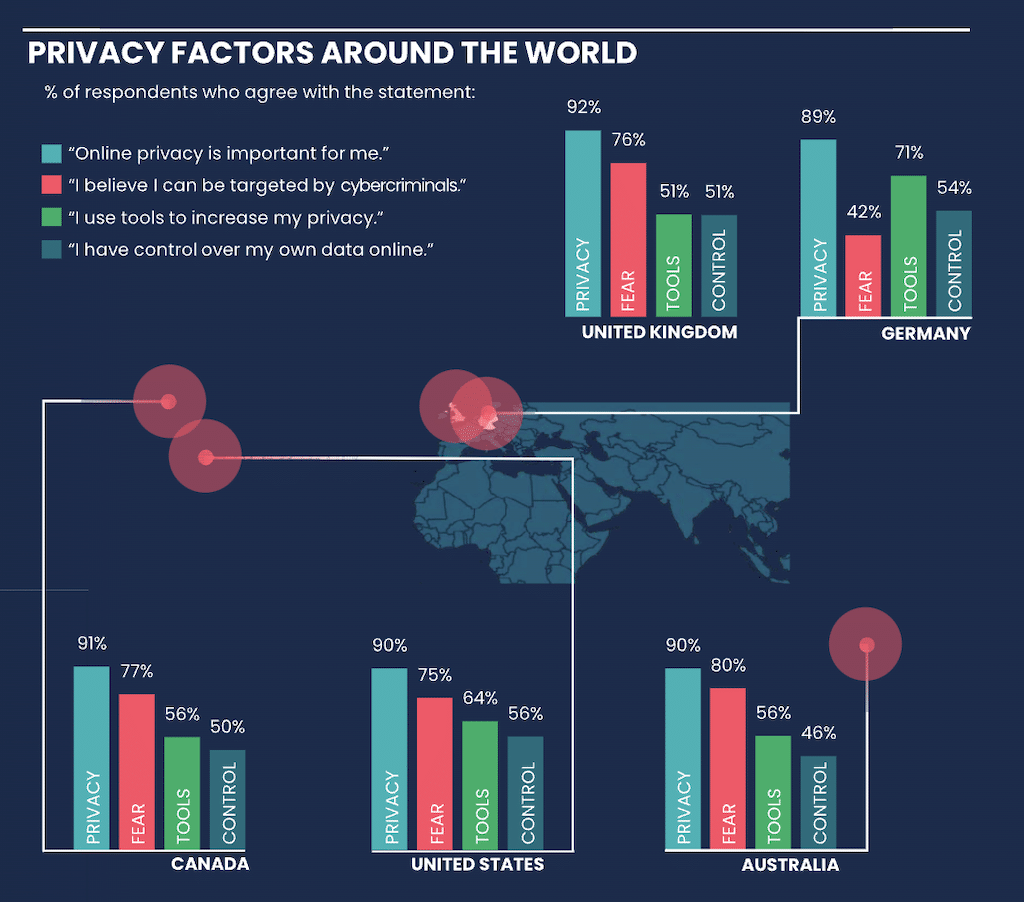Crafting targeted messages that always hit your customers’ sweet spots is essential for sales and long-term success. However, knowing exactly what will capture the interest of your audience hinges on one crucial element: data.

Understanding the Importance of Marketing Compliance in Digital Content
The more data you collect from your customers, competitors, and the market in general, the better equipped you become.
However, the process of gathering this type of data is increasingly regulated, and more complicated than ever before. Before you send your marketing messages out into the digital world, it’s vital that you’ve ensured full compliance with specific legal and regulatory standards.
Want to know more about marketing compliance? Keep reading.
What Is Marketing Compliance?
When we talk about marketing compliance, we’re usually referring to a range of elements that ensure your marketing efforts abide by specific rules and regulations. The complexity comes from the fact that regulatory requirements come from an array of sources, including international, federal, and state law, and industry standards.
Aside from the obvious legal considerations, marketing compliance helps with:
- Customer privacy concerns: Having a solid marketing compliance plan in place can help assure your customers that you’re doing all you can to protect their confidential information at all times.
- Truth, honesty, and transparency: With things like having an ESG reporting strategy becoming increasingly important, it’s clear that companies around the world and across sectors are expected to demonstrate their ethical credentials. Compliance is a key part of this.
- Finance: Having a strong compliance strategy in place means you won’t have to go back through content to fix it if you don’t meet regulations. Plus, you won’t be at risk or fines.
Why Is Marketing Compliance So Crucial?
There are many reasons why marketing compliance is so vital – let’s look in more detail at four of the most important ones.
It keeps you on the right side of the law
First and foremost, the main reason why you’ll need to have a compliant digital marketing strategy is because it’s required by several laws. Regulations like GDPR (General Data Protection Regulation) and CCPA (California Consumer Privacy Act) impact how you manage data. Meanwhile, agencies like the FDA and the FTC have particular restrictions about how you advertise.
When you can demonstrate that your marketing content is in full compliance with these – and, in some cases, many other – laws and industry standards, you’re already in a much better place to avoid fines, penalties, and other forms of legal action.
It helps protect customer data
Online security is a key concern for many customers. This impacts the data they’re willing to share — and who they’re willing to share it with.

Having a solid marketing compliance plan allows you to keep all your customer data safe and secure, leading you to two separate but equally important benefits:
- Peace of mind that, by collecting, storing, and accessing customer information safely, you’re complying with data privacy laws.
- Winning customer trust by showing you take their privacy extremely, and that you’re committed to safeguarding whatever information they trust you with.
It strengthens customer trust
Following on from the previous point, it’s important to mention that compliance in marketing truly shines a light on your core values as a company. Sure, you’re in the game to make a profit and sell as many of your products as possible. But you also want to demonstrate that this should never come at the expense of things like trust, honesty, and legal requirements.
Customer trust, in particular, can be greatly enabled by things like truthful advertising, as well as by complying with optional, non-legal requirements in areas like sustainability. For instance, meeting the requirements for ISO 14001 shows that you’re committed to cutting waste, investing in greener practices, and reducing carbon emissions.
Given 75% of Gen Z view sustainability as more important than brand names, highlighting your compliance with these optional standards can go a long way to building a positive image.
Your entire marketing strategy should, therefore, be as transparent and responsible as you can. This, in turn, will help you build and strengthen consumer trust and loyalty.
4 Easy and Actionable Ways to Ensure Digital Marketing Compliance
How can you make sure that all your digital content complies with the latest rules and regulatory requirements, while also safeguarding customers’ data and following your company’s internal guidelines? Read on to discover four approaches to enable this.
Stay up-to-date with current regulations
It may sound obvious, but the first thing you’ll want to do involves learning which marketing regulations, exactly, you should be compliant with. Typically, compliance with marketing regulations will depend on the type of business you run – how big it is, which products or services it offers, where it’s located, and which sector it belongs to.
Any go-to-market strategy for a new location or product should include figuring out the specific laws, standards, and regulations that your company must abide by. Plus, you’ll need to make sure that you stay on top of any updates. Be prepared to review and reassess your methods in light of any amendments to the relevant marketing compliance regulations.
Regularly train employees
Another way to strengthen your marketing compliance lies in relying on a prepared, knowledgeable, and fully-trained workforce. To achieve this, you’ll need to create, organize, and deliver regular training sessions, focusing each one on a particular aspect of the regulatory compliance sphere.
As an extra bonus, providing frequent training can also boost the employee experience, as it shows your staff that you truly care about empowering them with the best and latest tools and knowledge to perform their job well.
Establish clear procedures to follow
Sometimes, it can be tricky to map a detailed legal requirement onto a day-to-day workflow. Therefore, make sure you have clear policies and procedures that your staff must follow when it comes to protecting data and privacy. Having them clearly set out and in an accessible location (for instance, an internal knowledge base) helps your team always put together fully compliant marketing messages.
Remember to keep an eye on these procedures through regular audits, updating them yearly, and following up with prompt communication to your compliance team.
Design a clear approval process
Lastly, remember that marketing compliance is a teamwork effort. This means that, regardless of who created your digital materials and how much you trust them to have done everything properly, every single piece of content must go through a thorough review and approval process before it gets published.
Doing so will enable you to spot anything that might have slipped through the cracks and take prompt action before it’s out there in the open, avoiding a potentially catastrophic outcome.
Marketing Compliance in Digital Content: Key Takeaways
Promoting your product or service offering through personalized marketing materials and sales content is key if you want to succeed. However, making sure that those marketing messages comply with a set of rules and legal standards around privacy, data safety, fair competition, and transparency is just as vital.
From avoiding deceptive marketing practices to keeping your compliance teams always up-to-speed with the latest legal requirements, there's a lot you can do. So, what are you waiting for? It's time to start building your compliance strategy for creative content, with the tips outlined in this article to always be on the right side of the law.